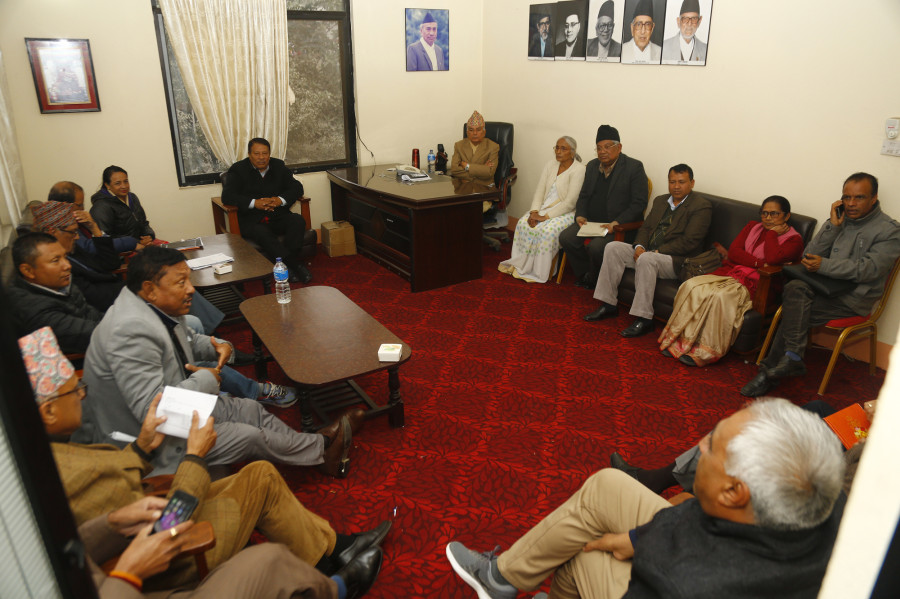Editorial
The opposition counts in a democracy, but the present political outlook for Nepali Congress looks dire
Should the party keep dithering, the danger is that national politics could become shallow and prolonged with the continued dominance of one party.
The Nepali Congress was at the forefront of setting political narratives. Be it when convincing the then Maoists to come to dialogue and mainstreaming them into politics, or promulgating the constitution. The party has derailed of late, and there seems to be no sign of improvement either. The Nepali Congress clearly lacks the same zeal, and there is no clarity regarding the ideologies the different factions want to pursue. But as if those issues were not already besetting the grand old party, factional feuds and polarisation have deepened. Last week, opposing factions boycotted a Central Working Committee meeting after party President Sher Bahadur Deuba failed to table a work plan to hold the 14th General Convention.
Leaders of the two factions headed by Ram Chandra Poudel and Krishna Prasad Sitaula refused to attend the meeting, demanding that Deuba come up with a work plan for the general convention which needs to take place before March 2020. It is regrettable that the leaders of the party continue to let a feud between factions dominate its fate.
Nepali Congress President Deuba has been having a hard time managing the party. Members have time and again accused him of ‘running the party unilaterally’ and not leading the party in Parliament as he should have. And rightly so. Under Deuba’s leadership, the Nepali Congress has been unable to hold the general convention on time and been a weak opposition. It became infamous for providing political patronage to Aftab Alam—a Member of Parliament from Rautahat who was recently convicted for his involvement in a bomb blast in Fradahawa, Rajpur in the district in April 2008.
At this point, the Nepali Congress is more vulnerable than ever and has been left alone to introspect, for neither the public nor other political parties are taking it seriously.
The Congress might be facing multiple internal challenges, but these circumstances should not deter it from adhering to democratic principles. Taking party decisions after proper deliberations and holding the Nepali Congress’ pending general convention cannot be pushed back. But it is up to the leadership to realise so.
The opposition counts in a democracy, but the present political outlook for the Congress looks dire. The Nepali Congress, to pose a counter, will need to fix the organisational infirmities that ail it. Setting up robust party structures at different levels, including the provincial and local levels, will be its immediate challenge. The sooner they do this, the sooner they will be able to focus on issues at the national level, and competitive politics will bounce back. But should the Congress keep dithering, the danger is that national politics could become shallow and prolonged with the continued dominance of one party.
***
What do you think?
Dear reader, we’d like to hear from you. We regularly publish letters to the editor on contemporary issues or direct responses to something the Post has recently published. Please send your letters to [email protected] with "Letter to the Editor" in the subject line. Please include your name, location, and a contact address so one of our editors can reach out to you.




 19.69°C Kathmandu
19.69°C Kathmandu














